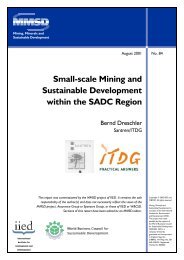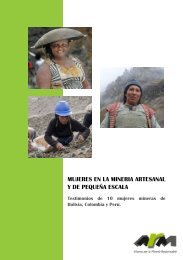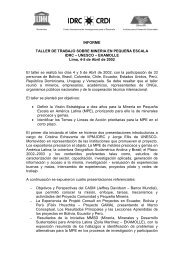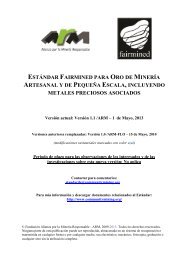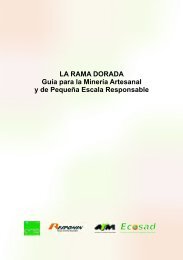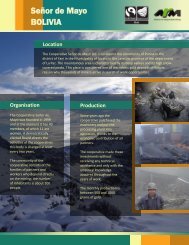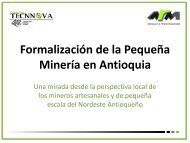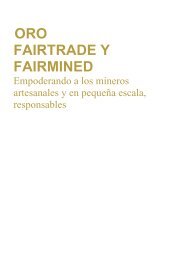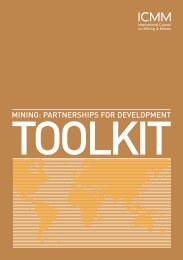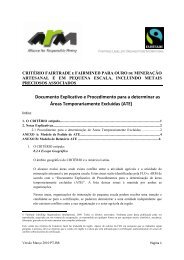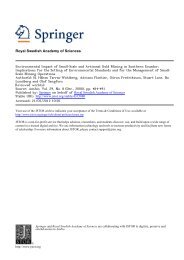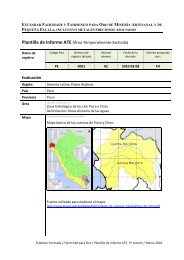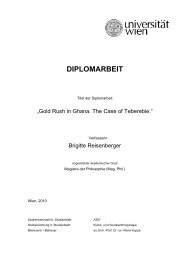A Poisonous Mix - Human Rights Watch
A Poisonous Mix - Human Rights Watch
A Poisonous Mix - Human Rights Watch
Create successful ePaper yourself
Turn your PDF publications into a flip-book with our unique Google optimized e-Paper software.
Companies in Other Countries<br />
Mali also exports gold to several other European and North American countries, Thailand,<br />
and China. One trader reported that international buyers have come occasionally straight<br />
to the mines and bought there. 379<br />
According to the figures obtained from the Ministry of the Economy and Finances, between<br />
2009 and 2011, the third largest business partner after Switzerland and the United Arab<br />
Emirates was Belgium. 380 During the first of half of 2011, a Belgian company, Tony Goetz,<br />
imported about 60 kilograms, worth close to US$ 3 million. 381 In response to a letter from<br />
<strong>Human</strong> <strong>Rights</strong> <strong>Watch</strong> about the use of child labor in Mali’s artisanal gold mines, Tony<br />
Goetz stated that “artisanal mines that make use of highly toxic mercury are not among the<br />
suppliers of Tony Goetz NV,” and that their suppliers have acknowledged that they do not<br />
use child labor. The company also said that “the amount of gold purchased from Malian<br />
suppliers by Tony Goetz represents only a very negligible amount of the total purchases of<br />
the company (i.e. less than 0.5% of the total purchases).” 382<br />
Government Mining Policies: Failure to Regulate Artisanal Mining<br />
The Malian government policy on mining is primarily focused on large-scale mining, which<br />
accounts for the majority of Mali’s gold exports, and the need to attract international<br />
investors. Where the government does deal with artisanal mining, its approach is mostly<br />
characterized by a laissez-faire attitude and a neglect of the pervasive poverty, child labor,<br />
and mercury use in artisanal mines. The government tolerates most artisanal mining<br />
activities, including those outside the legally established mining corridors. According to<br />
one official, 97 percent of artisanal mining sites lie outside the corridors. 383 The<br />
government has failed to regulate and support the sector, a step that could increase<br />
miners’ incomes and help eliminate child labor.<br />
One reason for this situation is that many local government officials and traditional<br />
authorities benefit from artisanal mining, by raising fees for shafts or getting part of the<br />
gold production as customary owner of the land. 384 Sometimes, local government officials<br />
even become gold miners themselves, and receive considerable income through the<br />
miners working for them. An official from the ministry of mines said that there are<br />
379 <strong>Human</strong> <strong>Rights</strong> <strong>Watch</strong> interview with gold trader, Kéniéba, April 1, 2011.<br />
380 See Annex I. The estimate is based on June 2011 gold prices.<br />
381 See Annex II.<br />
382 See Annex V.<br />
383 <strong>Human</strong> <strong>Rights</strong> <strong>Watch</strong> interview with government official, Ministry of Mines, Bamako, April 6, 2011.<br />
384 See section II for details.<br />
77 HUMAN RIGHTS WATCH | DECEMBER 2011



